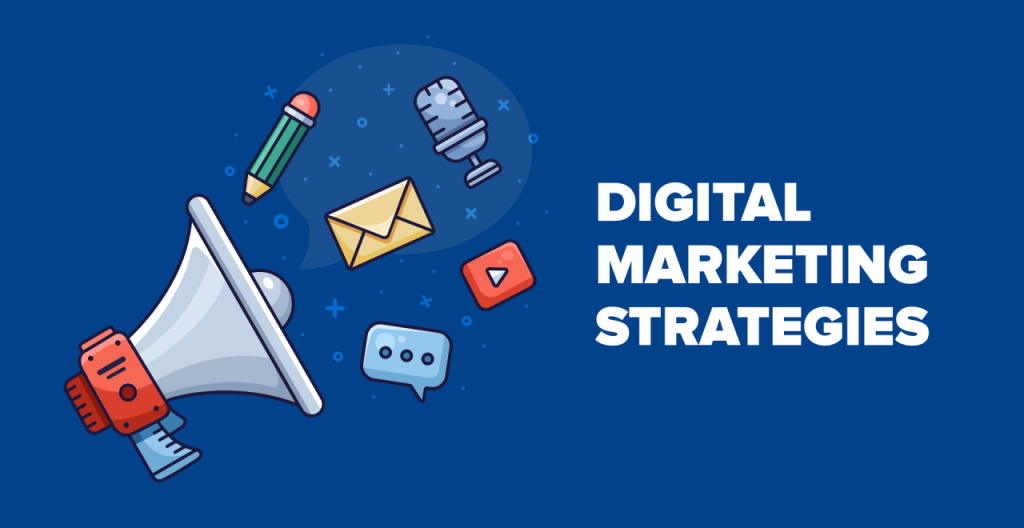In today’s rapidly evolving digital landscape, having a robust digital marketing strategy is essential for the success and growth of any business. With consumers spending more time online and engaging with brands through various digital channels, it’s imperative for businesses to develop a strategic approach to reach and connect with their target audience effectively. In this article, we’ll discuss the steps involved in developing a comprehensive digital marketing strategy for your business.
Define Your Objectives:
The first step in developing a digital marketing strategy is to clearly define your objectives. What do you want to achieve through your digital marketing efforts? Whether it’s increasing brand awareness, generating leads, driving website traffic, or boosting sales, having clearly defined objectives will guide your strategy and help you measure its success.
Know Your Target Audience:
Understanding your target audience is crucial for crafting a digital marketing strategy that resonates with them. Conduct market research to identify your ideal customers’ demographics, interests, behavior, and preferences. This information will enable you to tailor your messaging and choose the most appropriate digital channels to reach your audience effectively.
Conduct a Competitor Analysis:
Analyzing your competitors’ digital marketing strategies can provide valuable insights into what’s working in your industry and where there are opportunities for differentiation. Identify your key competitors and analyze their online presence, content strategy, social media engagement, and advertising tactics. This will help you identify gaps in the market and refine your own strategy accordingly.
Choose the Right Digital Channels:
With a plethora of digital channels available, it’s essential to choose the ones that are most relevant to your target audience and align with your business objectives. Whether it’s social media, search engine marketing (SEM), email marketing, content marketing, or influencer partnerships, each channel offers unique opportunities to engage with your audience. Select the channels that best suit your business and allocate your resources accordingly.
Develop Compelling Content:
Content lies at the heart of any successful digital marketing strategy. Create high-quality, relevant, and engaging content that provides value to your audience. Whether it’s blog posts, videos, infographics, podcasts, or social media posts, your content should resonate with your audience and align with your brand messaging. Additionally, optimize your content for search engines to improve its visibility and drive organic traffic to your website.
Implement SEO Strategies:
Search engine optimization (SEO) plays a crucial role in driving organic traffic to your website and improving your online visibility. Conduct keyword research to identify relevant search terms and incorporate them into your website content, meta tags, and headings. Focus on creating valuable, user-friendly content that addresses your audience’s needs and interests while adhering to SEO best practices.
Leverage Social Media:
Social media platforms offer unparalleled opportunities to connect and engage with your audience on a more personal level. Develop a social media strategy that aligns with your overall objectives and target audience. Create compelling content, foster conversations, and build relationships with your followers to increase brand awareness and drive engagement. Additionally, consider investing in social media advertising to amplify your reach and target specific demographics.
Measure and Analyze Performance:
Continuously monitor and analyze the performance of your digital marketing efforts to gauge their effectiveness and make informed decisions. Utilize analytics tools to track key metrics such as website traffic, conversion rates, engagement levels, and ROI. Identify areas of improvement and adjust your strategy accordingly to optimize results over time.
In conclusion, developing a comprehensive digital marketing strategy requires careful planning, execution, and optimization. By defining clear objectives, understanding your audience, leveraging the right digital channels, and creating compelling content, you can effectively reach and engage with your target audience, drive business growth, and achieve your marketing goals. Adapt to the evolving digital landscape, stay abreast of emerging trends, and continuously refine your strategy to stay ahead of the competition and maximize your online presence.


